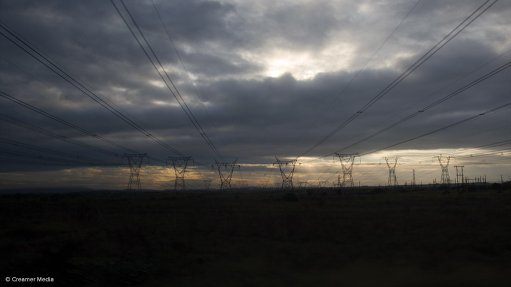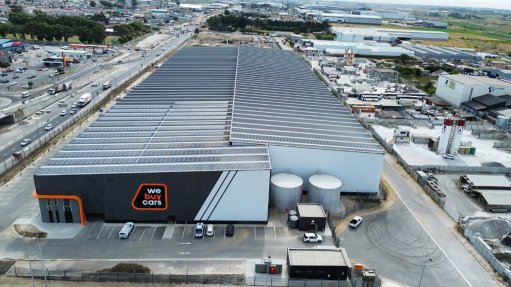Building Management System is the blueprint for smart construction in SA
This article has been supplied.
At this time of automated, centrally-managed and smart control in South Africa’s building construction industry, Building Management Systems (BMS) plays a lead role as a computer-based approach to managing facilities and equipment.
BMS is the bedrock of a building’s interconnected systems, those that run and monitor features like air conditioning, heating, lighting, emergency infrastructure, access control and sensors.
Databuild CEO Morag Evans points out that while the technology has been around for some time, the advent of commercial smart technology has elevated the importance of BMS in construction going forward.
What does it do exactly?
Generally BMS consists of control panels installed within the building’s plant room which is connected to sensors, valves and switches.
It is the mechanism used to ensure a building performs at optimum levels at all times and functions as a ‘living’ component of the business. Compared with separate control systems, a BMS offers centralised control, flexibility, interactivity and feedback.
Evans points out that the construction industry is becoming more eco-conscious with operators aggressively pursuing ‘green strategies’, notwithstanding the fact that environmental awareness is entrenched in the criteria governing energy performance standards and related certification.
One of the main features of BMS is that it helps operators minimise energy use and waste, and research shows that it controls as much as 80% of a building’s energy use.
“I think given the intense focus on energy and power supply in South Africa, the use of BMS to manage energy use, conservation and optimisation makes sense,” says Evans.
Variety of BMS systems
Evans acknowledges that there are several options available to building owners in terms of BMS, including a computerised maintenance management system; a facility management system; computer-aided facility management software; integrated workplace management system (IWMS); and Enterprise Asset Management (EAM) Software.
But essentially there are two basic types: monitoring and targeting systems, and then continuous commissioning systems.
“There are different types of BMS, but the main component of any BMS is the ability to link up systems, automate control and empower users with measured management,” Evans continues.
Benefits of BMS
In addition to energy and power supply management, BMS presents an effective way to manage the building and - perhaps most importantly - related costs.
One of the most significant benefits associated with BMS is the strengthened ability to manage costs and utilise resources effectively.
Doing so results in increased staff productivity, enhanced safety and security, and lengthened sustainability of equipment.
Top of the list of concerns for building owners and business drivers is the safety and security of resources, including staff and equipment. BMS helps managers keep tabs on the status of these resources, how much is used, when, where and how.
Databuild says there is some level of understanding of the practical reasons behind BMS technology and solid reasons why a business should invest. These reasons all corroborate the suggestion that any modern building today cannot really function without BMS in place.
South Africa’s construction industry is a tough environment that requires a careful combination of human and robotic functions.
As Databuild explains, BMS automates processes and can be used to replace people in tasks that are physical, manual, repetitive and/or conducted in dangerous environments (extreme elements, chemicals etc.)
While there are challenges linked with BMS, such as technology limitations, unpredictable development costs and economic limits, there are more advantages than disadvantages.
Evans concludes, “We are mindful that construction contractors, owners, funders, sub-contractors and everyone else involved in the South African building construction industry gain immediate, true value from BMS. More than just a mainstay in construction, BMS has evolved to ensure that modern building infrastructure is not only aesthetic, but practical, with the capacity to assist and support trade.”
Article Enquiry
Email Article
Save Article
Feedback
To advertise email advertising@creamermedia.co.za or click here
Comments
Press Office
Announcements
What's On
Subscribe to improve your user experience...
Option 1 (equivalent of R125 a month):
Receive a weekly copy of Creamer Media's Engineering News & Mining Weekly magazine
(print copy for those in South Africa and e-magazine for those outside of South Africa)
Receive daily email newsletters
Access to full search results
Access archive of magazine back copies
Access to Projects in Progress
Access to ONE Research Report of your choice in PDF format
Option 2 (equivalent of R375 a month):
All benefits from Option 1
PLUS
Access to Creamer Media's Research Channel Africa for ALL Research Reports, in PDF format, on various industrial and mining sectors
including Electricity; Water; Energy Transition; Hydrogen; Roads, Rail and Ports; Coal; Gold; Platinum; Battery Metals; etc.
Already a subscriber?
Forgotten your password?
Receive weekly copy of Creamer Media's Engineering News & Mining Weekly magazine (print copy for those in South Africa and e-magazine for those outside of South Africa)
➕
Recieve daily email newsletters
➕
Access to full search results
➕
Access archive of magazine back copies
➕
Access to Projects in Progress
➕
Access to ONE Research Report of your choice in PDF format
RESEARCH CHANNEL AFRICA
R4500 (equivalent of R375 a month)
SUBSCRIBEAll benefits from Option 1
➕
Access to Creamer Media's Research Channel Africa for ALL Research Reports on various industrial and mining sectors, in PDF format, including on:
Electricity
➕
Water
➕
Energy Transition
➕
Hydrogen
➕
Roads, Rail and Ports
➕
Coal
➕
Gold
➕
Platinum
➕
Battery Metals
➕
etc.
Receive all benefits from Option 1 or Option 2 delivered to numerous people at your company
➕
Multiple User names and Passwords for simultaneous log-ins
➕
Intranet integration access to all in your organisation





















